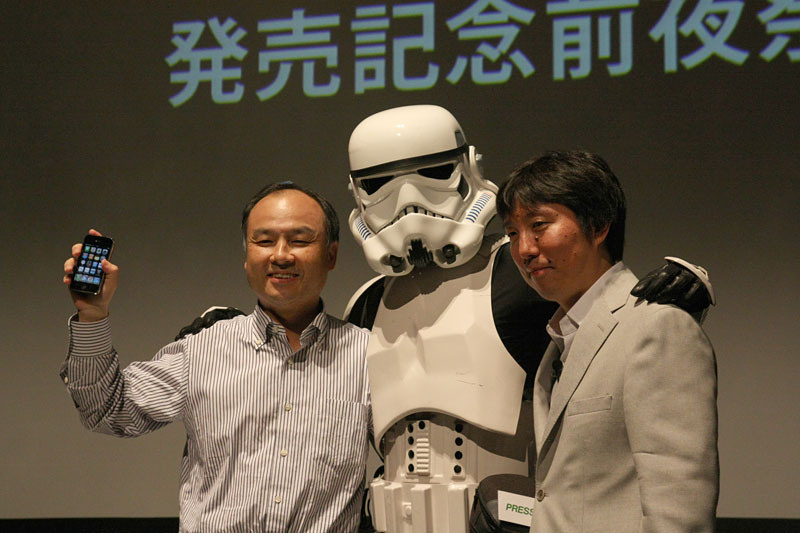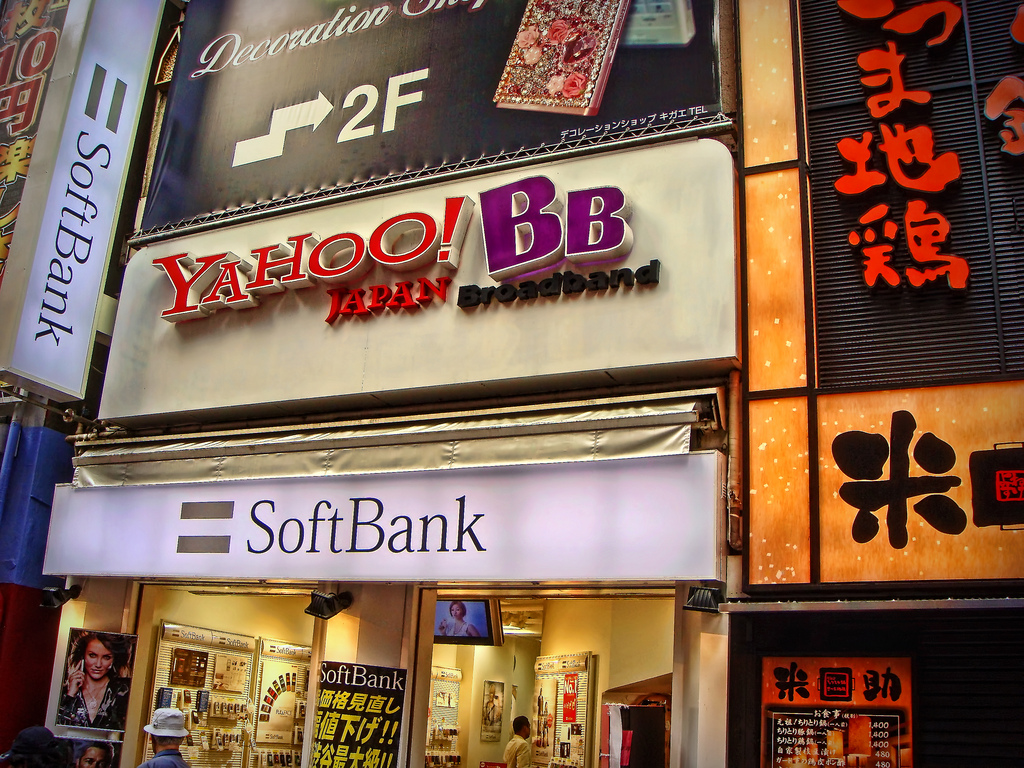Yesterday, Japanese telecom giant Softbank announced it was buying a 70 percent stake in Sprint Nextel. While Sprint investors seem to be excited about the deal—since it was confirmed last week, Sprint’s stock has risen 14 percent—SoftBank shares have moved the other way. Since Softbank confirmed the merger talks, its stock price fell 17 percent in a single day, the largest single drop since the company was listed on Japanese markets in 1994.
But Japanese business watchers say that the smart money is on SoftBank’s CEO, Masayoshi Son, and his “maverick” managerial style. After all, he did become Japan’s second-richest person (now worth $7.2 billion).
“He’s a very calculating strategist with a knack to see what the next big thing is,” said Ulrike Schaede, a professor of Japanese business at the University of California, San Diego. “Every time he does a big bet like this, like with Vodafone, the stock price of SoftBank plummets and everyone says he’s gone crazy and six months later people say, ‘Wow, he’s got a plan.’”
Under Son's leadership, SoftBank brought the iPhone to Japan and increased its own annual net income by seven-fold over the last four years. But he has also lost huge amounts along the way. For instance, SoftBank acquired Vodafone KK, the company’s Japanese unit, for $15.1 billion in 2006—a move that the company has yet to fully recover from. Bloomberg reports that on March 3, 2006, the day the company confirmed those talks, SoftBank was worth 3.49 trillion yen ($44.33 billion); today, it is worth just 2.65 trillion yen ($33.67 billion).
“He’s not an establishment player,” Steve Vogel, a professor of political science and the chair of the Center of Japanese Studies at the University of California, Berkeley, told Ars. “He’s a very aggressive, risk-taking, entrepreneurial person. He’s been colossally successful and had some colossal failures. But overall he’s made an impact on Japan—he’s the closest thing to Bill Gates in Japan.”



 Loading comments...
Loading comments...
